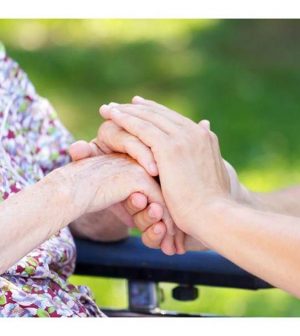- The Best Time of Day to Drink Bone Broth to Maximize Health Benefits
- 8 Ways to Increase Dopamine Naturally
- 7 Best Breads for Maintaining Stable Blood Sugar
- Gelatin vs. Collagen: Which is Best for Skin, Nails, and Joints?
- The Long-Term Effects of Daily Turmeric Supplements on Liver Health
- Could Your Grocery Store Meat Be Causing Recurring UTIs?
- Are You Making This Expensive Thermostat Error This Winter?
- Recognizing the Signs of Hypothyroidism
- 10 Strategies to Overcome Insomnia
- Could Artificial Sweeteners Be Aging the Brain Faster?
Give Others Help, Get Back Health Benefits: Study

When it comes to helping others and your health, it might be better to give than to receive, a new study suggests.
Researchers surveyed more than 1,000 Americans between 34 and 84 about their social involvement and how much they thought they could rely on their family, friends or a spouse if they needed help.
On a key measure of health — chronic inflammation — positive social relationships were associated with lower inflammation only among respondents who said they were available to provide social support to family and friends.
“It may be that when people believe they can give more support to friends and family, these relationships are especially rewarding and stress-relieving, which reduces inflammation,” study co-author Baldwin Way said in a news release from Ohio State University. He’s an associate professor of psychology.
In other words, having people who support you may not help your health unless you’re also there when they need you, according to the findings.
“Positive relationships may be associated with lower inflammation only for those who believe they can give more support in those relationships,” said lead author Tao Jiang, a doctoral student in psychology at OSU.
Preliminary data suggest that the connection between offering social support and health is strongest in women, he said.
“This reflects the idea that social relationships are often seen as more important for women than for men,” Jiang said. “But our sample size was not large enough to show that conclusively. We need to study that issue further.”
While the study only examined what people said they were willing to do and not their actual actions, it does give “a more nuanced understanding” of the link between health and relationships, Jiang said.
“This work underscores the importance of incorporating the concept of giving support into future research in this area,” he said.
The findings were recently published online in the journal Brain, Behavior and Immunity.
More information
University College London outlines the benefits of helping others.
SOURCE: Ohio State University, news release, Nov. 22, 2021
Source: HealthDay
Copyright © 2026 HealthDay. All rights reserved.










